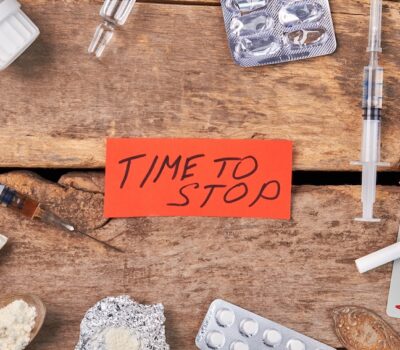Relapse prevention is a critical part of maintaining long-term sobriety. Recovery is an ongoing journey that requires dedication, self-awareness, and the right tools to navigate challenges. While setbacks can occur, having a well-thought-out strategy can reduce the likelihood of relapse and help individuals maintain control during difficult moments. Here are some practical tips and strategies to strengthen your recovery and sustain your progress.
Understanding Relapse
Relapse often occurs in stages—emotional, mental, and physical. The process can start long before someone takes a drink or uses a substance. Emotional relapse may involve feelings of stress, isolation, or frustration that aren’t addressed. Mental relapse can include cravings or romanticizing past substance use. Physical relapse is the act of using a substance again. Recognizing these stages early is essential for prevention.
Recognize and Manage Triggers
Triggers are situations, people, or emotions that may provoke cravings or lead to relapse. Identifying your personal triggers is the first step in managing them. Common triggers include stress, social environments where substances are present, or specific memories tied to past substance use.
Once triggers are identified, develop healthy coping mechanisms to manage them. For example:
- Practice mindfulness: Techniques such as deep breathing, meditation, or yoga can help you stay grounded and manage stress.
- Avoid high-risk situations: Steer clear of environments or people that may tempt you to use substances.
- Replace old habits with healthy ones: Engage in hobbies or activities that distract you from cravings and boost your well-being.
At Harris House, relapse prevention is integrated into our Continuum of Care, helping individuals recognize their triggers and develop strategies to manage them effectively.
Build a Support Network
A strong support system is essential for preventing relapse. Surround yourself with people who encourage and support your sobriety. This can include family members, friends, sponsors, or members of a recovery group. Regularly attending support group meetings such as Alcoholics Anonymous (AA) or SMART Recovery provides accountability and a sense of community.
Having a support system also means reaching out when you’re struggling. Isolation can increase the risk of relapse, so maintain open communication with trusted individuals who understand your journey. Harris House offers resources like the Intensive Outpatient Program to ensure that you remain connected to a supportive network throughout your recovery.
Create a Routine
Structured daily routines provide stability and reduce the likelihood of relapse. A consistent schedule minimizes idle time and helps focus your energy on positive activities. Incorporate the following into your routine:
- Regular exercise: Physical activity releases endorphins, improves mood, and reduces stress.
- Healthy eating: A balanced diet supports mental and physical health, making it easier to manage cravings and stress.
- Sleep hygiene: Adequate rest is essential for emotional regulation and energy.
By developing a routine, you create a framework that supports your recovery and helps you maintain balance.
Set Realistic Goals
Goals give you a sense of purpose and direction, which is critical in recovery. Start by setting small, achievable objectives, such as attending a specific number of support group meetings or completing a project. As you accomplish these smaller goals, work toward long-term aspirations like career advancement or rebuilding relationships.
Celebrate your progress, no matter how small. Recognizing achievements reinforces positive behavior and motivates you to continue moving forward.
Be Prepared for Cravings
Cravings are a natural part of recovery and can occur even after long periods of sobriety. Having a plan to manage cravings can make a significant difference. Techniques include:
- Distracting yourself: Engage in a hobby, take a walk, or call a friend when cravings arise.
- Challenging negative thoughts: Remind yourself why you chose sobriety and the benefits it brings.
- Using relaxation techniques: Deep breathing or visualization exercises can help reduce the intensity of cravings.
Harris House equips individuals with tools to handle cravings effectively, ensuring that they feel empowered to face challenges with confidence.
Focus on Self-Care
Taking care of yourself physically, emotionally, and mentally is vital for preventing relapse. Engage in activities that promote relaxation and reduce stress, such as journaling, reading, or spending time in nature. Address any underlying mental health issues by seeking therapy or counseling.
Self-care is not just about relaxation; it’s about creating a life that supports your sobriety and enhances your overall well-being. Harris House emphasizes holistic approaches to recovery, helping individuals prioritize their health and happiness as part of their treatment.
Seek Professional Support When Needed
If you feel at risk of relapse or overwhelmed by triggers, seeking professional support is crucial. Treatment programs and therapy can provide additional tools and resources to navigate difficult times. Harris House offers comprehensive relapse prevention support through tailored programs that address the unique challenges of each individual’s recovery journey.
Relapse is not a failure but an opportunity to learn and grow. By recognizing triggers, building a support network, creating a routine, and practicing self-care, you can strengthen your resilience and maintain long-term sobriety. Harris House is here to provide the tools, guidance, and encouragement you need every step of the way.








